Description
Nature builds materials, cells, tissues, and organisms by the dynamic assembly of building blocks spanning multiple scales and hierarchies, leveraging complexity and emergence to confer unparalleled functionality, selectivity, adaptability, and interactivity far beyond synthetic materials. Our network aims to study, emulate, and create materials that embody key traits of living matter, forming a new field we call “Quasi-living systems.”
These materials can be designed with enhanced precision to exhibit self-repair properties, responsiveness, adaptability and interactivity. This innovative strategy will give us a unique opportunity to generate a completely new class of responsive systems with the potential to overcome some of the current limitations and safety concerns associated with living cells. The possibility of learning by merging synthetic and natural blocks will not only allow us to generate unprecedented systems but will also provide valuable insights into how biology tackles complex challenges, guiding the design of versatile, adaptive materials.
NET-QUASI counts on the participation of the following IBEC research groups:
- Bioinspired Interactive Materials and Protocellular Systems
- Cellular and Molecular Mechanobiology
- Integrative cell and tissue dynamics
- Molecular Bionics
- Smart nano-bio-devices
Contact us:
Main contact: nkostina@ibecbarcelona.eu
Additional contact: aleroux@ibecbarcelona.eu
Network Members
The members of this network have very complementary scientific backgrounds, ranging from chemistry (Kostina, Guillamat), membrane biochemistry, and biophysics (Le Roux, Kostina) to self-assembly (Kostina, Guillamat, Crespo, Gosh) and collective behaviors (Guillamat, Crespo), as well as diverse technical skills, including cell membrane mechanics (Le Roux), and advanced imaging (Kostina, Guillamat, Le Roux).
Network Coordinator:
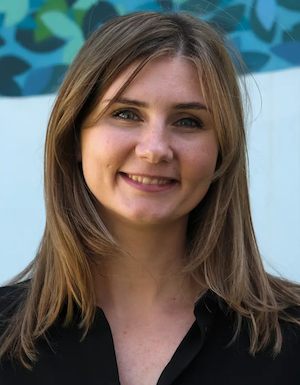
Nina Kostina
Ramon y Cajal Senior Researcher
She pioneers synthetic models of cell membranes.
Network Representatives:
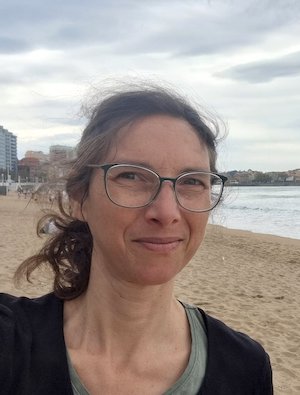
Anabel-Lise Le Roux
Senior Scientist
She studies cell membrane mechanics using advanced microscopy.
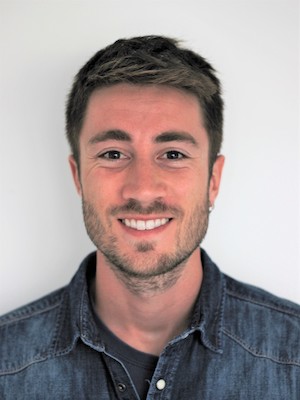
Pau Guillamat
Postdoctoral Researcher
He works on synthetic living materials.
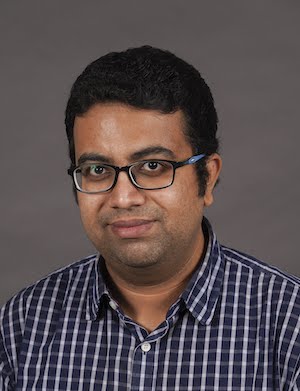
Subhadip Ghosh
Beatriu de Pinós Fellow
He focuses on hybrid vesicles for bioimaging and chemotaxis.
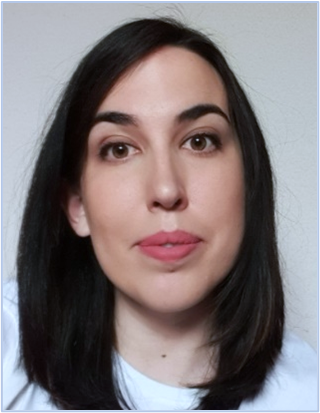
María Crespo-Cuadrado
Postdoctoral Researcher
She develops 3D tissue models for biomedical applications.
Network Programme
NET-QUASI will organize 4 workshops (WS) and a final retreat. Each workshop will feature a distinguished national or international expert and IBEC speakers. Each workshop will consist of a half day of presentations starting with the combined presentation of the IBEC group and then be dedicated to the invited speaker talks, followed by “meet the speaker catering”.
Workshops information.
Workshop 1 : Biophysical Principles of Self-Assembly and Self-Organization Across Living and Synthetic Systems
Date and Venue
Friday 23/05/2025 · 09:30h – 16:200 h
Dolors Aleu, Cluster II, Parc Científic de Barcelona
Self-assembly and self-organization are fundamental principles that govern the formation of complex structures and functions across biological systems. This workshop will explore how these processes emerge in nature, how they contribute to the organization of life, and whether similar behaviors can be replicated in engineered systems. By bringing together perspectives from biology, chemistry, and physics, our speakers aim to uncover the underlying mechanisms that drive self-organized processes in living matter across scales. A deeper understanding of these principles could not only provide insights into the fundamental organization of biological systems but also lead to the design of adaptive and responsive materials.
Scheduled Program:
09:15 Registration
09:30 – Opening
09:40 – Keynote speaker: Prof. Jan Brugués, Technische Universität Dresden, Dresden, Germany, “Self-organization of the cytoplasm by physical instabilities”
10:30 – Dr. Pau Guillamat, IBEC, Barcelona, Spain. “ From cells to smart surfaces: steering living nematics into shape”
10:50 – Invited speaker: Prof. Alejandro Torres-Sánchez, European Molecular Biology Laboratory (EMBL), Barcelona, Spain, “ Break to build: how mechanical fracture patterns the beating heart ”
11:20 – Coffee break
12:00 – Invited speaker: Prof. Jordi Ignés-Mullol, University of Barcelona, Barcelona, Spain, “Emerging phenomena and symmetry breaking in active nematics”
12:30 – Invited speaker: Prof. Maria Guix, University of Barcelona, Barcelona, Spain. “ Harnessing emergent behavior in living robotic systems”
13:00 – Miguel González-Martín, IBEC, Barcelona, Spain. “ Development of mechanosensitive molecules for the mechanical control of transcription”
13:20 – Dr. Nina Kostina, IBEC, Barcelona, Spain. “From Assembly to Action: Programming Shape and Motion in Synthetic Vesicles“
13:40 – Dr. Vladislav Petrovskii, IBEC, Barcelona, Spain, “Charge-density-mediated self-assembly in vesicles of polyelectrolyte–surfactant complexes”
14:00 – Lunch
14:50 – Prof. Samuel Sánchez Ordóñez, IBEC, Barcelona, Spain. “Collective behavior of chemically powered nanomotors”
15:20 – Dr. Valentino Barbieri, IBEC, Barcelona, Spain. “ Supramolecular Architects: Engineering Self-Assembled Nanodrugs”
15:50 – Invited speaker: Prof. Katherine Villa, Institute of Chemical Research of Catalonia (ICIQ), Tarragona, Spain. “ Programmable Self-Assembly in Photoactive Colloidal Motors via Light Shaping”
16:20 – closing remarks
Plenary talks details:
Prof. Jan Brugués, Technische Universität Dresden, Dresden, Germany
Self-organization of the cytoplasm by physical instabilities
Early development across vertebrates and insects critically relies on robustly reorganizing the cytoplasm of fertilized eggs into individualized cells. This intricate process is orchestrated by large microtubule structures that traverse the embryo, partitioning the cytoplasm into physically distinct and stable compartments. Despite the robustness of embryonic development, here we uncover an intrinsic instability in cytoplasmic partitioning driven by the microtubule cytoskeleton. We reveal that embryos circumvent this instability through two distinct mechanisms: either by matching the cell cycle duration to the time needed for the instability to unfold or by limiting microtubule nucleation. These regulatory mechanisms give rise to two possible strategies to fill the cytoplasm, which we experimentally demonstrate in vitro and in zebrafish and Drosophila embryos. Our results indicate that the temporal control of microtubule dynamics could have driven the evolutionary emergence of species-specific mechanisms for effective cytoplasmic organization. Furthermore, our study unveils a fundamental synergy between physical instabilities and biological clocks, uncovering universal strategies for rapid, robust, and efficient spatial ordering in biological systems.
Prof. Jordi Ignés-Mullol, Department of Physical Chemistry, University of Barcelona, Barcelona, Spain
Emerging phenomena and symmetry breaking in active nematics
I will present experimental studies of a biomimetic active nematic model system, which forms when filamentous tubulin microtubules cross-linked by kinesin molecular motors are condensed at the interface between the aqueous medium and an oil interface. Consumption of ATP leads to the emergence of long-range orientational order of the filaments and to self-sustained flows driven by the unbinding of topological defects. Despite the apparent chaotic dynamics, the system features an intrinsic length scale that determines its adaptation to different interventions. I will present scenarios in which different self-organization modes and spatiotemporal patterns emerge due to changes in the interfacial rheology or to lateral confinement of the biomaterial.
Prof. Alejandro Torres-Sánchez, European Molecular Biology Laboratory, Barcelona, Spain
“Break to build: how mechanical fracture patterns the beating heart ”
Heart development poses a striking mechanical paradox: morphogenesis must unfold while the tissue is already beating—over 150 times per minute and undergoing strains of around 100%. This means building complex structure under dynamic, continuous mechanical load. It is well established that cardiac function influences morphogenesis, but how it contributes to the spatial patterning of developmental processes remains unclear. Here, we show that mechanical fracture of the cardiac extracellular matrix, driven by myocardial contractility, is essential for both the initiation and correct localization of trabeculation. These fractures arise in the ventricular outer curvature where mechanical stress accumulates due to tissue geometry and motion. The resulting fractures act as spatial cues, guiding cardiomyocyte delamination and shaping ventricular architecture. Our findings identify mechanical fracture as a morphogenetic mechanism, and offer a clear example of how early organ function feeds back to pattern form—highlighting the active role of tissue mechanics in developmental design.
Prof. Katherine Villa, Institute of Chemical Research of Catalonia (ICIQ), Tarragona, Spain
Programmable Self-Assembly in Photoactive Colloidal Motors via Light Shaping
Self-assembly in active matter systems is a powerful strategy for designing dynamic and adaptive materials. Photoactive colloidal motors provide a unique platform to study and control self-organization by harnessing light as both an energy source and a structuring tool. In this talk, I will present our recent advances in light-driven micromotors that integrate photocatalytic propulsion and optical patterning to achieve programmable self-assembly. In particular, I will introduce the development of visible-light-responsive polymeric colloids based on metal-complex systems that cluster upon illumination. By modulating light intensity, irradiation time, and spatial distribution, we can direct the formation of three-dimensional colloidal architectures exhibiting emergent behaviors driven by passive-active and active-active interactions. Moreover, the influence of the chemical fuel on the resulting cooperative behaviors will be discussed, shedding light on how fuel composition and concentration impact self-organization dynamics. These light-responsive micromotors not only provide insights into fundamental self-assembly mechanisms but also open new avenues for designing dynamic microstructures with tailored functionalities. Their ability to harness external energy inputs for controlled organization makes them promising candidates for applications ranging from environmental sensing, photocatalysis to micromanipulation.
Prof. Samuel Sanchez, IBEC, Barcelona, Spain
Collective behavior of chemically powered nanomotors
Chemically active nanomotors are out-of-the-equilibrium systems which create spatial variations in the chemical composition of their surrounding medium, which in turn generate chemical gradients and hydrodynamic flows that enable self-propulsion. At the level of individual particles, their motion and interactions depend on both their configuration and dynamic state. Moreover, the interplay between particle activity and external flows can induce robust directional movement, such as upstream rheotaxis or motion perpendicular to the flow direction. While such behaviors have been extensively studied at the individual level, recent advances have shifted focus toward the collective dynamics of active matter in 2D and 3D.
Active particles can spontaneously organize into ordered assemblies, exhibiting collective behaviors akin chemotaxis, cross-stream migration, topographical guidance or bioconvection seen in some living systems. This collective behavior presents numerous advantages compared to individual nanomotors, including expanded coverage and prolonged motion.
In this seminar, I will cover these bio-mimicking collective behaviors presented by simple chemically active colloids reported by our group over the last decade, the challenges in experimental settings and also the future avenues in this field. Some of these discoveries may have implications in motion in biological fluids, targeted drug delivery, and cancer therapy.
Dr. Maria Guix, Department of Physical Chemistry, University of Barcelona, Barcelona, Spain
Harnessing emergent behavior in living robotic systems
Soft robotic systems often present bio-mimicking designs that resemble actuation mechanisms of certain biological organisms, such as swimmers resembling fish or flagellated microorganisms. However, there are some unique properties from living organisms that are specially challenging to obtain in their artificial counterparts, such as self-healing, adaptability, or bio-sensing capabilities. Among these capabilities, it should be remarked the high level of adaptability, activity and autonomy that such biomaterials present, following the three principles of animacy, presenting also interesting emergent behavior depending on the culturing and robot’ design. In the field of bio-hybrid robotics, several platforms across different scales had been developed, but the ones based on living muscles has attracted increasing attention. Regarding the design and fabrication of these robotic platforms, 3D printing technologies are particularly advantageous for creating advanced living robots incorporating skeletal muscle cells. While biohybrid swimming robots generally resemble the design and motion principle of animals, exploring alternative configurations that are not bio-mimetic is of great interest, especially when providing additional advantages, like mechanical self-stimulation.In this talk, different fabrication techniques to generate living robots either at bigger or smaller scales to the small scales will be presented, as well as emergent shape configurations under controlled stress. Overall, the key features when designing these new generation of robots using living components as active material will be discussed, as well as their animacy level and their main applications in the biomedical and the environmental field.
Workshop 2 : Mimicking and Reprogramming Life: From Synthetic Cells and Active Matter to Smart Therapeutics
Date and Venue
Friday 10/10/2025 · 09:30h – 15:00 h
Baobab room, Tower I, Floor 11, IBEC
This workshop brings together leading researchers to explore how we can mimic, reprogram, and apply the principles that govern living systems through synthetic designs. Topics will span from fundamental mechanisms of gene regulation and the physics of active matter to the creation of synthetic cells, membrane mimics, and therapeutic nanodevices. By integrating molecular, physical, and engineering perspectives, the program highlights recent advances in designing quasi-living systems and translating them into smart biomedical applications.
Programme
09:30 – 09:40 – Opening — Nina Kostina
Session chair: Nina Kostina
09:40 – 10:30 – Keynote speaker: Prof. Bert Poolman (University of Groningen, NL) “Synthetic, out-of-equilibrium cell-like systems for directing reaction networks and maintaining homeostasis”
10:30 – 11:05 – Dr. Rosa Martinez-Corral (Centre for Genomic Regulation, Barcelona, Spain) “Context-dependency in gene regulation”
11:05 – 11:40 – Prof. Marino Arroyo (Universitat Politècnica de Catalunya, Barcelona, Spain) Title pending
11:40 – 12:15 – Dr. Mohit Kumar (University of Barcelona) “Active Phospholipid Vesicle as Cellular Membrane Mimic”
12:15 – 12:45 – Coffee break
Session chair: David Esporrín Ubieto
12:45 – 13:30 – Keynote speaker: Prof. Giuseppe Battaglia (IBEC, Barcelona, Spain) “Mimicking biological emergent properties for biomaterial design: principles and applications”
13:30 – 14:00 – Carles Prado (IBEC, Barcelona, Spain) “Crossing the Skin Barrier: A New Role for Enzymatic Nanobots”
14:00 – Closing remarks
Workshop 3: Designing Life-like Function
Date and venue
Friday 21/11/2025 · 09:20h – 16:20h
Dolors Aleu Room (PCB, Barcelona)
Part of the IBEC Thematic Network “Quasi-living systems: Merge and Emerge” (NET-QUASI), this third workshop explores how life-like function can be designed into synthetic and hybrid systems. By merging molecular, material, and biological approaches, researchers are uncovering how responsiveness, adaptability, and collective behavior emerge across scales—from molecular assemblies and delivery systems to tissues that sense and reorganize.
This session gathers leading voices in synthetic biology, materials science, and mechanobiology to discuss how bridging the living and synthetic worlds can inspire a new generation of functional, adaptive systems.
Agenda
09:30 – Opening Remarks. Nina Kostina (Institute for Bioengineering of Catalonia, Spain)
09:40 – Keynote Lecture: Prof. Wilhelm T. S. Huck (Radboud University, Nijmegen, Netherlands) “Towards Molecular Networks that Learn”
10:35 Invited Lecture: Dr. Benjamí Oller (IQS, Barcelona), “Engineering conditionally active proteins and synthetic receptors for precision delivery”
11:20 – IBEC Lecture: Dr. Subhadip Ghosh, “Motility of Enzyme-Powered Protocells”
11:55 – Coffee Break
12:25 – Keynote Lecture: Prof. Kerstin Göpfrich (Center for Molecular Biology, Heidelberg University, Germany), “RNA design for quasi-living cellular systems”
13:10 – IBEC Lecture: Prof. César Rodríguez-Emmenegger, “Phagocytic Synthetic Cells: Non-Living Predators to Fight Bacteria”
14:00 – Lunch Break
14:50 – Early Career IBEC Lecture: M.Sc. Aina Albajar, “Studying the mechanical regulation of nucleocytoplasmic transport using Single Molecule Tracking”
15:25 – IBEC Lecture: Prof. Xavier Trepat, “Synthetic mechanobiology of epithelial shape and migration”
16:10 – Closing Remarks. Nina Kostina
Plenary talk details:
Towards Molecular Networks that Learn
Prof. Wilhelm T. S. Huck
The flow of information is as crucial to life as the flow of energy. Living cells constantly probe their environment, and processing this information enables them to adapt their behavior in response to internal and external changes. Chemical reaction networks—such as those found in metabolism and signalling pathways—allow cells to sense physical properties of their surroundings, search for food, and maintain homeostasis.
In this talk, Prof. Huck will discuss results on implementing concepts of reservoir computing in molecular systems, demonstrating how chemical and enzymatic reaction networks can perform multiple non-linear classification tasks in parallel, predict the dynamics of other complex systems, and be used for time-series forecasting. This *in chemico* information-processing paradigm provides proof-of-principle for the emergent computational capabilities of complex chemical networks, paving the way for a new class of biomimetic information-processing systems.
Synthetic mechanobiology of epithelial shape and migration
Prof. Xavier Trepat
Epithelial sheets form specialized 3D structures suited to their physiological roles, such as branched alveoli in the lungs, tubes in the kidney, and villi in the intestine. To generate and maintain these structures, epithelia must undergo complex 3D deformations across length and time scales. How epithelial shape arises from active stresses, viscoelasticity, and luminal pressure remains poorly understood. I will present different approaches to study the mechanobiology of epithelial shape from the bottom up. I will discuss new technologies to design epithelia of arbitrary size and geometry and to subject them to controlled mechanical deformations in 3D. I will show that monolayers exhibit superelastic behavior when stretch is applied and that they readily buckle when tension is released. Intermediate filaments and the cell nucleus play a central role in these processes. We use this phenomenology and a 3D vertex model to rationally direct spontaneous pattern formation and, hence, engineer tissue folding. I will also present recent advances to understand the mechanobiology of single and collective cell migration. By combining optogenetics, micropatterning, and mechanical measurements, we established a quantitative relationship between group velocity and the asymmetry of the traction and stress profiles. Our results challenge the notion of autonomous leader cells by showing that collective cell migration requires a global organization of mechanical stresses within the cluster. Finally, I will discuss how epithelial shape and migration govern the dynamics of intestinal organoids.
Motility of Enzyme-Powered Protocells
Dr. Subhadip Ghosh
The self-propelled, synthetic active matter that transduces chemical energy into mechanical motion are examples of non-equilibrium systems with diverse applications in nanomachinery, fluidics, sensing, and transport. In this context, enzyme-powered propulsion is a classic model where the catalytic reaction has been utilized either by encapsulating enzymes within nanocarriers or tethering them to the vehicle chassis.1,2 In a recent study, we have shown phospholipid vesicles, when tagged with different enzymes, displayed motile behaviour and chemotaxis owing to catalytic conversion of the corresponding substrate solution.3,4 Interestingly, from these results, it was concluded that liposomes when engineered optimally with surfacebound cues could adapt and reconfigure their directional motion in response to interactions with bulk solute molecules. Although liposomes-based drug delivery has gained considerable attention owing to their success in recent RNA-based vaccines, but they need to be rationally designed to evade the formation of ‘protein corona’ to effectively protect cargoes from degradation and deliver them in a targeted and specific way.5 In this context, polymeric assemblies comprising of amphiphilic copolymers have been a topic of burgeoning research interest due to their strong repulsive steric potential that can prevent protein fouling and other nonspecific interactions.6 Extensive studies from our group have successfully proved that such polymeric vesicles do not adsorb when incubated with different serum proteins and are highly stable in complex physiological environments. Combining the intriguing results from the lipid and polymer vesiclebased studies, our ongoing research is aimed at preparing lipid-polymer hybrid vesicles having multifaceted versatility; biocompatibility coming from the lipid segment and chemical robustness from the polymer fraction. By rationally engineering the surface with active cues, we are trying to achieve directional motility and selectivity, and use the hybrid protocells as targeted delivery platforms. We anticipate our results to constitute the first steps in fabricating multifunctional motors for carrying out specific functions under physiological conditions.
RNA design for quasi-living cellular systems
Prof. Kerstin Göpfrich
RNA design is still in its infancy compared to protein folding and DNA nanotechnology. Nonetheless, fundamental questions on the origins of life in an RNA world as well as the rise of RNA therapeutics make RNA design a highly exciting upcoming field. We have recently developed a software tool, pyFuRNAce, to streamline the design of functional RNA nanostructures [1]. Here, I will show how RNA sequence design can lead to RNA droplets and microparticles, while mutagenesis gives rise to emergent droplet phenotypes and functions [2]. We have already demonstrated the utility of DNA hydrogel microparticles for chemical stimulation inside of organoids [3]. I will discuss how RNA variants could give rise to more advanced phantom cells for similar applications, by integrating ribozymes and aptamers as well as directed evolution. In order to establish directed evolution pipelines, we have developed systems for targeted photopolymerization that enable cell encapsulation and image-based cell sorting. We envision that RNA nanostructures and their evolution will contribute to the development of evolvable quasi-living cellular systems, RNA therapeutics or phantom cells for tissue integration.
Studying the mechanical regulation of nucleocytoplasmic transport using Single Molecule Tracking
M.Sc. Aina Albajar (Institute for Bioengineering of Catalonia, Spain)
Cellular function relies on the precise regulation of macromolecular transport between the cytoplasm and the nucleus, a process governed by Nuclear Pore Complexes (NPCs). While traditional understanding held that transport through NPCs was mainly dictated by the physicochemical properties of the transported molecules, recent research has revealed an additional layer of regulation driven by mechanical forces. Whether applied directly or transmitted through the cytoskeleton, mechanical signals have the capacity to deform the nucleus and, consequently, alter the conformation of NPCs, increasing their diameter. This changes nucleocytoplasmic transport rates and impacts the localisation of a variety of signalling molecules. However, the cellular components responsible for force transmission to NPCs as well as the spatial distribution of this effect throughout the nuclear envelope, remain poorly understood. Here, we aim to answer these questions by investigating whether isolated nuclei, a minimal system depleted of all the cell’s cytoplasmic machinery, still exhibit mechanosensitive nucleocytoplasmic transport. To do so, we apply mechanical force by confining isolated nuclei to a certain micrometre height and, simultaneously, measure nucleocytoplasmic transport rates by tracking individual dextran molecules translocating through NPCs. Our preliminary results show that molecules translocate faster in confined nuclei, suggesting that unspecific force application to a passive nuclear envelope is enough to induce conformational changes in NPCs and alter transport dynamics.
Workshop 4 : Engineering Smart Materials: Programming Cellular Behavior for Therapeutic Solutions
Date and programme to be announced.
This workshop will be devoted to the design and development of materials with tunable properties that instruct living cells. By exploring the interactions between living cells and inert matter, researchers aim to direct cellular functions for therapeutic applications. The workshop will bring together national and international researchers, with a special focus on expertise in cellular mechanics, tissue dynamics, and bioinspired material design
The final retreat will feature two invited speaker talks, a selection of presentations from postdocs and senior researchers, and a career development roundtable discussion with senior PIs and speakers.
All IBEC groups are welcome to join the network and actively participate by sharing their insights.

